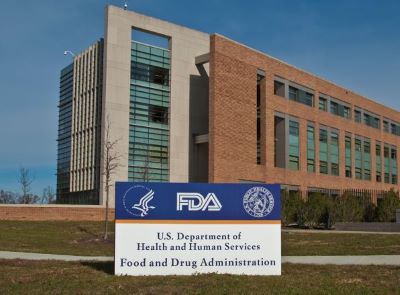The U.S. drug regulatory agency examined evidence presented by the company requesting approval for MDMA (ecstasy) and reports from experts examining that evidence before denying approval for the drug as mental health treatment. A medical journal has just retracted three MDMA therapy research papers for ethical violations.
The U.S. Food and Drug Administration (FDA) has rejected the psychedelic drug MDMA, commonly known as ecstasy or molly, as treatment for post-traumatic stress, a decision that Citizens Commission on Human Rights (CCHR) advocated in its statement submitted to the FDA during a public comment period earlier this year. The FDA’s decision ends the first attempt to gain the agency’s approval for a psychedelic drug treatment.
The FDA concurred with the findings of its advisory committee of independent experts, which held a public hearing in June on the use of MDMA for psychedelic-assisted psychotherapy. The committee voted overwhelmingly that the company which applied for drug approval, Lykos Therapeutics, failed in its clinical trials to prove the treatment was effective, and that benefits from the drug therapy did not outweigh the risks.
A briefing document prepared by FDA staff and issued prior to the hearing pointed to a number of drawbacks in the data from the Lykos clinical trials. Claims of efficacy could be skewed by a large majority of trial participants knowing whether they had received MDMA or placebo, the staff observed. The cardiovascular risks of MDMA, which acts as a stimulant, and the underreporting of adverse effects were also concerns.

During the hearing, committee members discussed allegations of ethical misconduct in the clinical trials, including claims that participants were pressured not to report adverse effects. The Wall Street Journal recently reported that three people participating in the Lykos clinical trials felt more suicidal during or after the testing, but felt pressured to report positive outcomes. Their adverse effects were not reflected in the research results.
Another patient was allegedly sexually assaulted by the two psychotherapists who stayed in the room with her as part of the MDMA treatment. MDMA is known to lower inhibition and increase sexual desire. Nese Devenot, a researcher at Johns Hopkins University who petitioned the FDA to hold the public hearing, told NPR that psychotherapy with a patient on MDMA “incentivized boundary violations.”
In June, ahead of the advisory committee hearing, the Institute for Clinical and Economic Review, an independent research organization that reviews health care interventions, issued a report that also was critical of the Lykos clinical trial data and results, concluding there was insufficient evidence to support approval of the MDMA treatment.
“Our veterans deserve better treatment than the risk of further damage to their mental health from a use of psychedelics that has not proven safe or effective.”
– Anne Goedeke, president, Citizens Commission on Human Rights, National Affairs Office
Additionally, Lykos was criticized by advisory committee members for the failure to follow the instructions, or protocol, for conducting its studies. Shortly after the FDA’s decision, the journal Psychopharmacology retracted three research papers it had published about MDMA-assisted psychotherapy due to “protocol violations amounting to unethical conduct” during the clinical trials. Many of the authors of the papers are reportedly affiliated with Lykos.
The FDA also had to contend with the fact that it regulates drugs, but cannot regulate the psychotherapy component of the proposed treatment.
The FDA’s decision not to approve this use of MDMA with psychotherapy was made despite massive lobbying by the psychopharmaceutical industry. Companies developing psychedelic drugs for therapy have attracted millions of dollars from investors hoping to cash in on a “psychedelic revolution.” Some veteran groups also advocated for approval because existing psychiatric drugs and practices have failed to handle veterans’ mental health issues.
“The FDA is commended for not caving in to the psychopharmaceutical industry’s pressure for approval of MDMA-assisted psychotherapy when safety and efficacy of the drug have not been established,” said Anne Goedeke, president of the CCHR National Affairs Office. “Psychedelic drugs are being pushed because psychiatric drugs and practices have failed to handle the mental health issues of many traumatized veterans; but our veterans deserve better treatment than the risk of further damage to their mental health from a use of psychedelics that has not proven safe or effective.”
